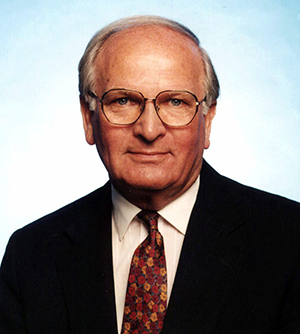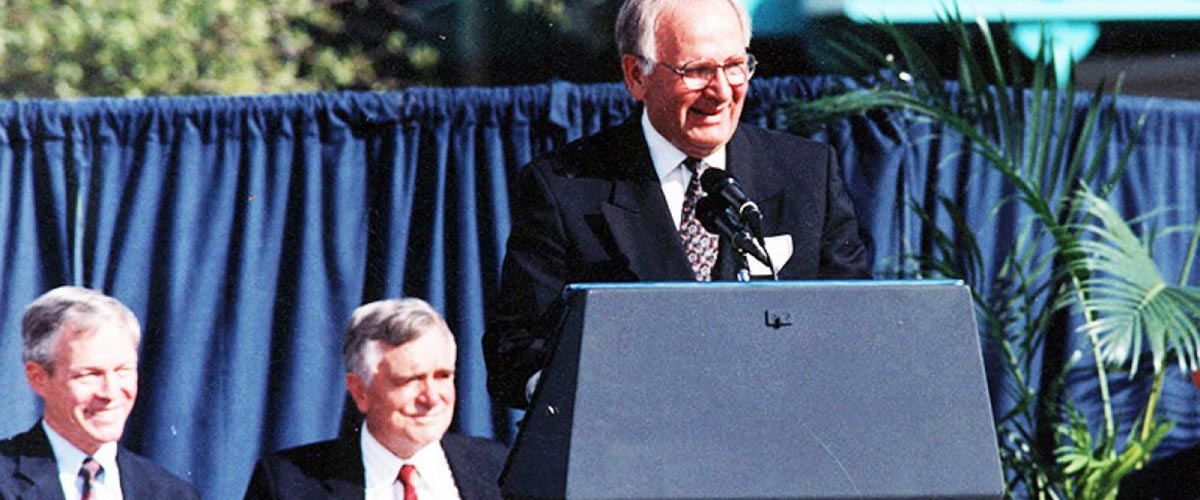John Robert Schrieffer, a Nobel laureate in physics who served as the chief scientist at the National High Magnetic Field Laboratory for many years, died July 27, 2019, in Tallahassee, Fla. He was 88 years old.
With John Bardeen and Leon Cooper, Schrieffer developed a theoretical explanation of superconductivity that garnered the trio the Nobel Prize in Physics in 1972.
The BCS theory (the acronym formed from the first letters of its creators' surnames) explains how electrons behave in low-temperature superconductors, materials that conduct electricity without any resistance when at extremely low temperatures. Completed in 1957, the theory describes how pairs of electrons "partner up" under these conditions and zip through some materials with perfect efficiency, unlike electrons in normal metals such as copper.

John Robert Schrieffer
Born in Oak Park, Illinois, in 1931, Schrieffer earned a bachelor's degree in physics at the Massachusetts Institute of Technology and a Ph.D. in physics at the University of Illinois at Urbana-Champaign, where he became a research assistant of Bardeen. He began his academic career at the University of Chicago, later advancing to positions at the University of Illinois, the University of Pennsylvania and the University of California, Santa Barbara. In the early 1990s, he moved to Tallahassee, where he was a university eminent scholar professor and the MagLab's chief scientist until his retirement in 2006.
"Bob Schrieffer was one of the great scientific minds of our times," said National MagLab Director Greg Boebinger. "The BCS theory, which has also proven relevant to astrophysics and high energy physics, is one of the towering achievements in theoretical physics since the middle of the last century. Bob brought massive credibility to the table when he and other leaders articulated a much broader vision for high magnetic field research than had been previously envisioned. I feel honored to have been his colleague and I will miss him greatly."
Schrieffer's many honors included the Oliver E. Buckley Solid State Physics Prize, the John Ericsson Award from the American Society of Swedish Engineers, the Comstock Prize of the National Academy of Science and the National Medal of Science. He served as the president of the American Physical Society and as chair of the Scientific Council of the International Centre for Theoretical Physics in Trieste.



